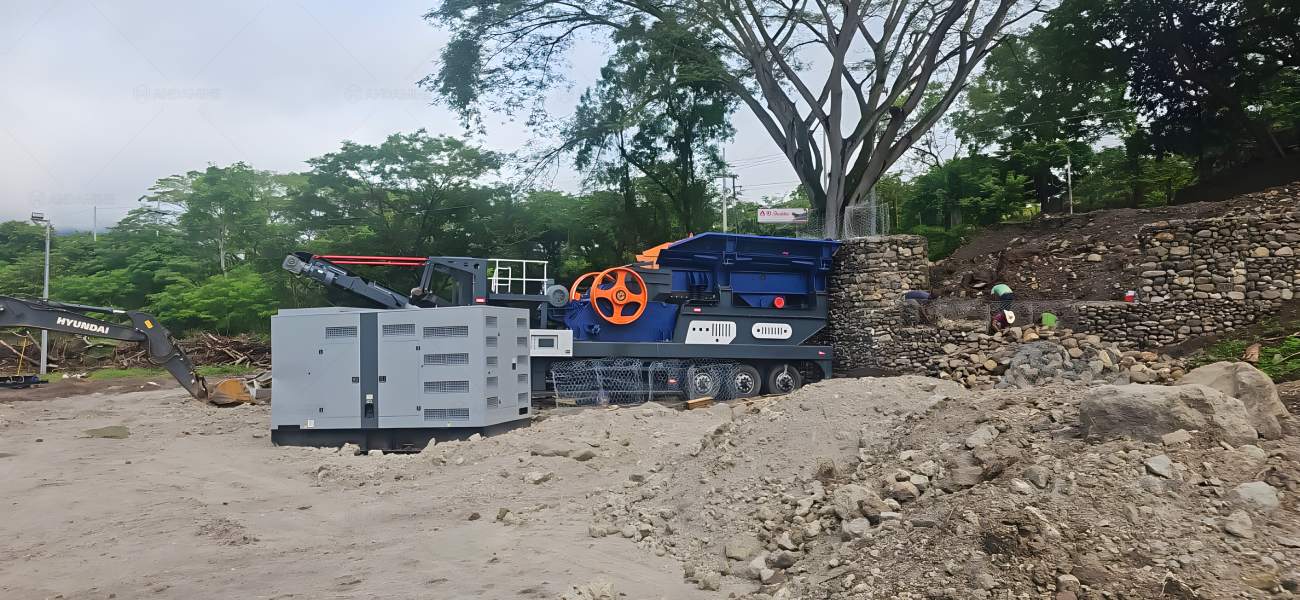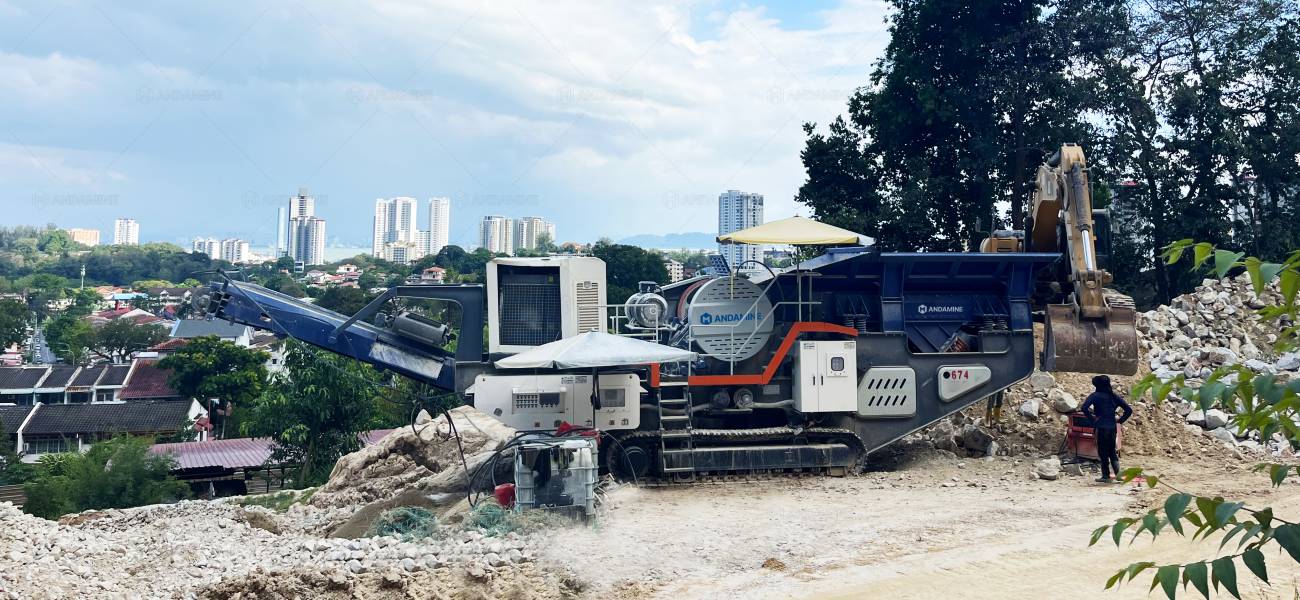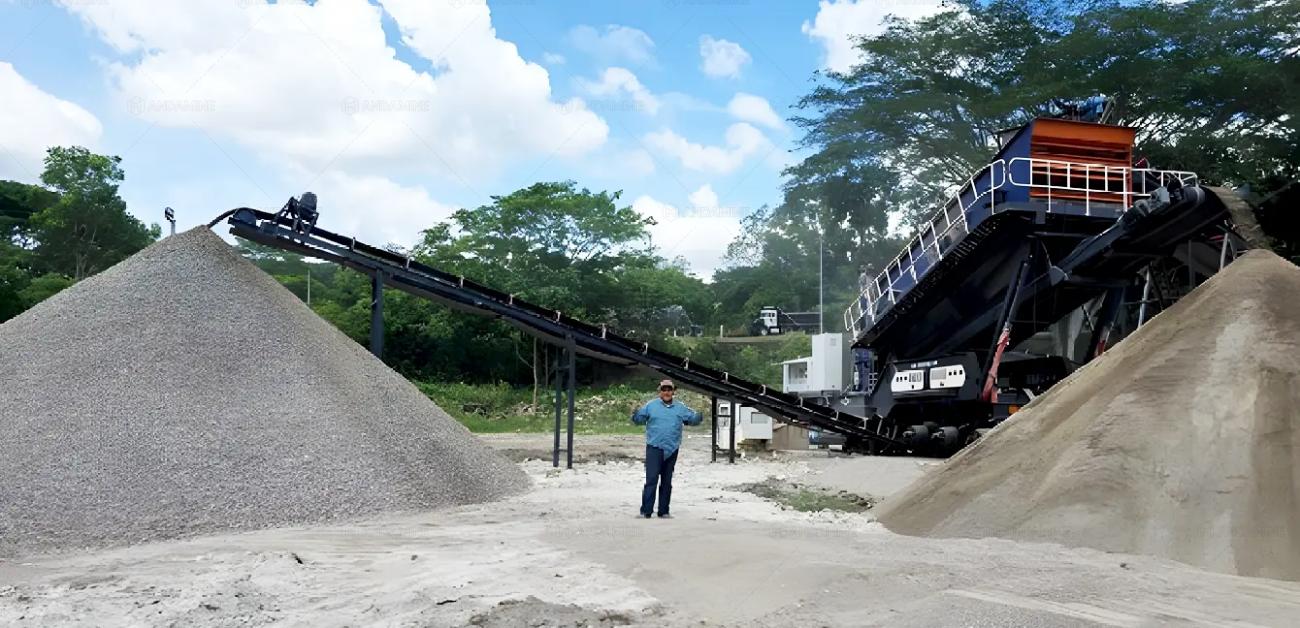In today’s fast-paced construction and mining industries, efficiency, flexibility, and cost savings are key drivers of equipment choices. Among the many crushing solutions available, the mobile jaw crusher for sale has emerged as a preferred option for contractors who require reliable on-site crushing. Unlike traditional stationary crushers, mobile units bring the crushing process directly to the job site, significantly reducing material transport costs and enhancing productivity.
As projects become more complex and deadlines tighter, contractors are looking at how mobile solutions, including the mobile crusher plant and combined mobile crushing plant, can streamline operations. This article explores why contractors favor mobile jaw crushers, how they work, and what benefits they bring to on-site crushing.

How Does a Mobile Jaw Crusher Work?
To understand why contractors increasingly invest in mobile jaw crushers, it is essential to know how a mobile jaw crusher works.
A mobile jaw crusher operates on a simple but highly effective mechanism:
Feeding: Raw materials such as rocks, concrete, or demolition debris are loaded into the feed hopper.
Crushing Action: Inside the machine, a movable jaw compresses materials against a fixed jaw, breaking them down into smaller, uniform sizes.
Output: The crushed material is discharged through a conveyor belt for use on-site or further processing.
Unlike fixed crushers, a mobile jaw crusher is mounted on a track or wheeled chassis, making it easy to transport between sites. This mobility allows contractors to move the machine close to the material source, drastically cutting down on hauling costs.
Advantages of On-Site Crushing with a Mobile Jaw Crusher
Reduced Transportation Costs
Hauling raw materials to a stationary crushing site and transporting aggregates back to the project area is both expensive and time-consuming. With a mobile jaw crusher for sale, contractors can crush materials right where they are needed, eliminating double handling and reducing fuel expenses.
Time Efficiency
Time is money in construction. Mobile jaw crushers speed up the workflow by allowing crushing and processing to occur simultaneously with other site activities. This minimizes delays and keeps projects on schedule.
Versatility for Different Materials
Modern mobile jaw crushers are designed to handle a wide range of materials, from natural stone and river gravel to reinforced concrete and demolition waste. Contractors benefit from this versatility as they can tackle multiple project types with a single piece of equipment.
Environmentally Friendly
On-site crushing reduces truck movements, lowering CO₂ emissions. Additionally, recycling demolition debris with a mobile crusher plant supports sustainable construction practices by reusing materials instead of sending them to landfills.

Mobile Crusher Plant: A Complete On-Site Solution
While a mobile jaw crusher is powerful on its own, contractors often turn to a mobile crusher plant for broader crushing requirements. A mobile crusher plant typically combines multiple stages of crushing and screening into one unit, allowing for:
-
Primary Crushing with a jaw crusher.
-
Secondary Crushing with an impact or cone crusher.
-
Screening to produce multiple aggregate sizes.
This integration ensures that contractors can produce high-quality, ready-to-use materials directly at the construction site. For large-scale projects, the mobile crusher plant is a game-changer, offering the capacity and efficiency of a full crushing station with the convenience of mobility.
Combined Mobile Crushing Plant: Expanding Capabilities
For contractors managing diverse materials and project scales, the combined mobile crushing plant offers even greater flexibility. These advanced systems integrate jaw crushers, cone crushers, impact crushers, and screening equipment into one portable unit.
Benefits include:
-
Multi-stage Processing: Contractors can crush, screen, and sort materials in one workflow.
-
Customizable Setups: Units can be configured depending on whether the project needs fine aggregates, road base, or recycled concrete.
-
Scalability: Combined mobile crushing plants can handle both small urban demolition projects and large quarry operations.
This adaptability makes them particularly attractive to contractors working across varied job sites with different crushing needs.
Why Contractors Choose Mobile Jaw Crushers Over Stationary Units
While stationary crushers have higher production capacity for massive, long-term quarrying operations, mobile jaw crushers are favored for on-site crushing because of their:
-
Mobility: Easy relocation between job sites without heavy dismantling.
-
Compact Design: Ideal for urban projects with limited space.
-
Rapid Setup: Quick installation reduces downtime.
-
Cost Savings: Lower labor, transportation, and fuel expenses.
For contractors working on road construction, building demolitions, or infrastructure repair, these benefits outweigh the higher initial investment compared to some stationary options.
Real-World Applications of Mobile Jaw Crushers
Urban Demolition Projects – Crushing reinforced concrete on-site to create recycled aggregate for reuse in new construction.
Road Construction – Processing gravel and rock directly along the route, minimizing material hauling.
Mining and Quarrying – Serving as mobile primary crushers to prepare feed for secondary units.
Infrastructure Repairs – On-demand crushing of old concrete and asphalt for road resurfacing.
These applications demonstrate the versatility and value mobile jaw crushers bring to contractors seeking efficiency and adaptability.

Conclusion
The growing preference for a mobile jaw crusher for sale among contractors reflects the industry’s shift toward mobility, efficiency, and sustainability. By understanding how a mobile jaw crusher works and leveraging the benefits of a mobile crusher plant or combined mobile crushing plant, contractors can achieve significant cost savings, faster project delivery, and environmentally responsible operations.
As construction demands evolve, mobile jaw crushers are not just an alternative to stationary systems—they are the future of on-site crushing. Contractors who invest in these solutions position themselves ahead of the competition, ready to tackle diverse projects with speed, efficiency, and confidence.
